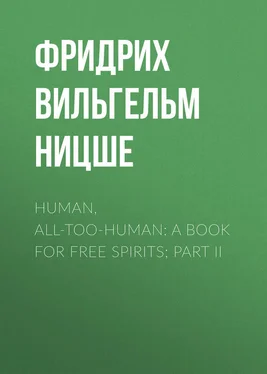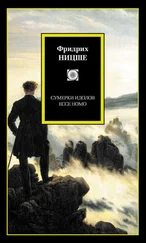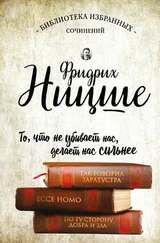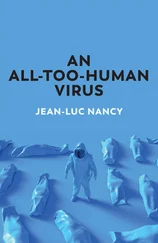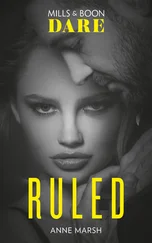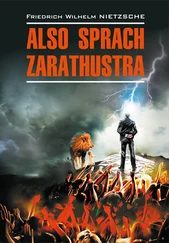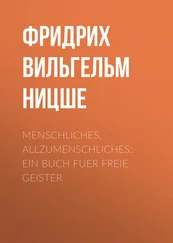Фридрих Ницше - Human, All-Too-Human - A Book For Free Spirits; Part II
Здесь есть возможность читать онлайн «Фридрих Ницше - Human, All-Too-Human - A Book For Free Spirits; Part II» — ознакомительный отрывок электронной книги совершенно бесплатно, а после прочтения отрывка купить полную версию. В некоторых случаях можно слушать аудио, скачать через торрент в формате fb2 и присутствует краткое содержание. Жанр: Философия, literature_19, foreign_antique, foreign_prose, на английском языке. Описание произведения, (предисловие) а так же отзывы посетителей доступны на портале библиотеки ЛибКат.
- Название:Human, All-Too-Human: A Book For Free Spirits; Part II
- Автор:
- Жанр:
- Год:неизвестен
- ISBN:нет данных
- Рейтинг книги:3 / 5. Голосов: 1
-
Избранное:Добавить в избранное
- Отзывы:
-
Ваша оценка:
- 60
- 1
- 2
- 3
- 4
- 5
Human, All-Too-Human: A Book For Free Spirits; Part II: краткое содержание, описание и аннотация
Предлагаем к чтению аннотацию, описание, краткое содержание или предисловие (зависит от того, что написал сам автор книги «Human, All-Too-Human: A Book For Free Spirits; Part II»). Если вы не нашли необходимую информацию о книге — напишите в комментариях, мы постараемся отыскать её.
Human, All-Too-Human: A Book For Free Spirits; Part II — читать онлайн ознакомительный отрывок
Ниже представлен текст книги, разбитый по страницам. Система сохранения места последней прочитанной страницы, позволяет с удобством читать онлайн бесплатно книгу «Human, All-Too-Human: A Book For Free Spirits; Part II», без необходимости каждый раз заново искать на чём Вы остановились. Поставьте закладку, и сможете в любой момент перейти на страницу, на которой закончили чтение.
Интервал:
Закладка:
Should my experience – the history of an illness and a convalescence, for it resulted in a convalescence – be only my personal experience? and merely just my “Human, All-too-human”? To-day I would fain believe the reverse, for I am becoming more and more confident that my books of travel were not penned for my sole benefit, as appeared for a time to be the case. May I, after six years of growing assurance, send them once more on a journey for an experiment? – May I commend them particularly to the ears and hearts of those who are afflicted with some sort of a “past,” and have enough intellect left to suffer even intellectually from their past? But above all would I commend them to you whose burden is heaviest, you choice spirits, most encompassed with perils, most intellectual, most courageous, who must be the conscience of the modern soul and as such be versed in its science : 3in whom is concentrated all of disease, poison or danger that can exist to-day: whose lot decrees that you must be more sick than any individual because you are not “mere individuals”: whose consolation it is to know and, ah! to walk the path to a new health, a health of to-morrow and the day after: you men of destiny, triumphant, conquerors of time, the healthiest and the strongest, you good Europeans !
To express finally in a single formula my opposition to the romantic pessimism of the abstinent, the unfortunate, the conquered: there is a will to the tragic and to pessimism, which is a sign as much of the severity as of the strength of the intellect (taste, emotion, conscience). With this will in our hearts we do not fear, but we investigate ourselves the terrible and the problematical elements characteristic of all existence. Behind such a will stand courage and pride and the desire for a really great enemy. That was my pessimistic outlook from the first – a new outlook, methinks, an outlook that even at this day is new and strange? To this moment I hold to it firmly and (if it will be believed) not only for myself but occasionally against myself… You would prefer to have that proved first? Well, what else does all this long preface – prove?
Sils-Maria, Upper Engadine,
September, 1886 .
Part I. Miscellaneous Maxims And Opinions
To the Disillusioned in Philosophy. – If you hitherto believed in the highest value of life and now find yourselves disillusioned, must you immediately get rid of life at the lowest possible price?
Overnice. – One can even become overnice as regards the clearness of concepts. How disgusted one is then at having truck with the half-clear, the hazy, the aspiring, the doubting! How ridiculous and yet not mirth-provoking is their eternal fluttering and straining without ever being able to fly or to grasp!
The Wooers of Reality. – He who realises at last how long and how thoroughly he has been befooled, embraces out of spite even the ugliest reality. So that in the long run of the world's history the best men have always been wooers of reality, for the best have always been longest and most thoroughly deceived.
Advance of Freethinking. – The difference between past and present freethinking cannot better be characterised than by that aphorism for the recognition and expression of which all the fearlessness of the eighteenth century was needed, and which even then, if measured by our modern view, sinks into an unconscious naïveté. I mean Voltaire's aphorism, “croyez-moi, mon ami, l'erreur aussi a son mérite.”
A Hereditary Sin of Philosophers. – Philosophers have at all times appropriated and corrupted the maxims of censors of men (moralists), by taking them over without qualification and trying to prove as necessary what the moralists only meant as a rough indication or as a truth suited to their fellow-countrymen or fellow-townsmen for a single decade. Moreover, the philosophers thought that they were thereby raising themselves above the moralists! Thus it will be found that the celebrated teachings of Schopenhauer as to the supremacy of the will over the intellect, of the immutability of character, the negativity of pleasure – all errors, in the sense in which he understands them – rest upon principles of popular wisdom enunciated by the moralists. Take the very word “will,” which Schopenhauer twisted so as to become a common denotation of several human conditions and with which he filled a gap in the language (to his own great advantage, in so far as he was a moralist, for he became free to speak of the will as Pascal had spoken of it). In the hands of its creator, Schopenhauer's “will,” through the philosophic craze for generalisation, already turned out to be a bane to knowledge. For this will was made into a poetic metaphor, when it was held that all things in nature possess will. Finally, that it might be applied to all kinds of disordered mysticism, the word was misused by a fraudulent convention. So now all our fashionable philosophers repeat it and seem to be perfectly certain that all things have a will and are in fact One Will. According to the description generally given of this All-One-Will, this is much as if one should positively try to have the stupid Devil for one's God.
Against Visionaries. – The visionary denies the truth to himself, the liar only to others.
Enmity to Light. – If we make it clear to any one that, strictly, he can never speak of truth, but only of probability and of its degrees, we generally discover, from the undisguised joy of our pupil, how greatly men prefer the uncertainty of their intellectual horizon, and how in their heart of hearts they hate truth because of its definiteness. – Is this due to a secret fear felt by all that the light of truth may at some time be turned too brightly upon themselves? To their wish to be of some consequence, and accordingly their concealment from the world of what they are? Or is it to be traced to their horror of the all-too brilliant light, to which their crepuscular, easily dazzled, bat-like souls are not accustomed, so that hate it they must?
Christian Scepticism. – Pilate, with his question, “What is Truth?” is now gleefully brought on the scene as an advocate of Christ, in order to cast suspicion on all that is known or knowable as being mere appearance, and to erect the Cross on the appalling background of the Impossibility of Knowledge.
“Natural Law,” a Phrase of Superstition. – When you talk so delightedly of Nature acting according to law, you must either assume that all things in Nature follow their law from a voluntary obedience imposed by themselves – in which case you admire the morality of Nature: or you are enchanted with the idea of a creative mechanician, who has made a most cunning watch with human beings as accessory ornaments. – Necessity, through the expression, “conformity to law,” then becomes more human and a coign of refuge in the last instance for mythological reveries.
Fallen Forfeit to History. – All misty philosophers and obscurers of the world, in other words all metaphysicians of coarse or refined texture are seized with eyeache, earache, and toothache when they begin to suspect that there is truth in the saying: “All philosophy has from now fallen forfeit to history.” In view of their aches and pains we may pardon them for throwing stones and filth at him who talks like this, but this teaching may itself thereby become dirty and disreputable for a time and lose in effect.
The Pessimist of the Intellect. – He whose intellect is really free will think freely about the intellect itself, and will not shut his eyes to certain terrible aspects of its source and tendency. For this reason others will perhaps designate him the bitterest opponent of free thought and give him that dreadful, abusive name of “pessimist of the intellect”: accustomed as they are to typify a man not by his strong point, his pre-eminent virtue, but by the quality that is most foreign to his nature.
Читать дальшеИнтервал:
Закладка:
Похожие книги на «Human, All-Too-Human: A Book For Free Spirits; Part II»
Представляем Вашему вниманию похожие книги на «Human, All-Too-Human: A Book For Free Spirits; Part II» списком для выбора. Мы отобрали схожую по названию и смыслу литературу в надежде предоставить читателям больше вариантов отыскать новые, интересные, ещё непрочитанные произведения.
Обсуждение, отзывы о книге «Human, All-Too-Human: A Book For Free Spirits; Part II» и просто собственные мнения читателей. Оставьте ваши комментарии, напишите, что Вы думаете о произведении, его смысле или главных героях. Укажите что конкретно понравилось, а что нет, и почему Вы так считаете.
